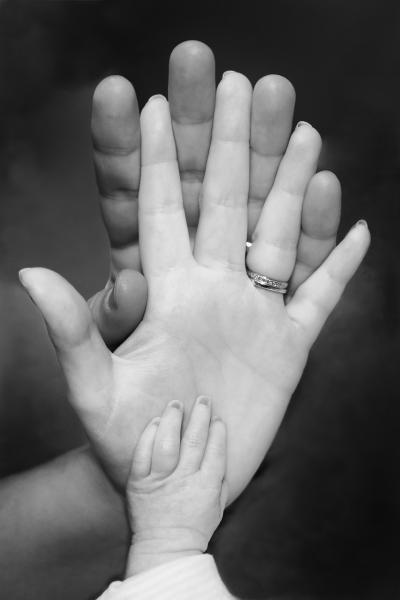For years, stories have been published about the shortcomings of the American healthcare system, especially as it relates to pregnancy, delivery, and postpartum care. It’s commonly reported that the United States has one of the highest maternal mortality rates of high-income countries. That’s reason enough to look more closely at healthcare around pregnancy and childbirth. However, birthing stories where patients felt dismissed, discriminated against, and unheard are also all too common. With all of that in mind, let’s take a look at the role of doulas.
What is a doula?
A doula is a person who provides guidance and support during pregnancy and labor. They are often not formally educated to be a healthcare provider, meaning they do not have specialized medical knowledge on these issues. Their role is often to act as a patient advocate.
“Doulas are trained to provide non-clinical emotional, physical and informational support for people before, during, and after labor and birth…Doulas can facilitate positive communication between the birthing person and their care providers by helping people articulate their questions, preferences and values.”
Most people have limited interaction with our healthcare system until they really need it. That means people often find themselves in overwhelming situations, possibly life-threatening, needing to navigate a complex, unfamiliar system filled with providers and specialists who are usually juggling multiple patients and tasks. While the providers are highly trained for their specific roles, they often don’t have the time nor the proper perspective to explain all the nuances of how the system works to a patient. Care coordination can and does slip through the cracks. In these cases, having a patient advocate familiar with the system, the expectations, and the patient can benefit everyone involved. Having an advocate who can ask relevant questions that the patient may not know to ask, and coordinate care between all the providers is an important role.
Doula Training
Since doulas are not clinicians, the requirements, or lack thereof, vary widely from state to state. According to the Department of Labor,
“As non-clinical providers, doulas are usually not required to be certified, and states determine their own requirements for doulas who choose to participate in Medicaid or private health insurance plans. Training topics may vary depending on specialization, but often include pregnancy, childbirth, and postpartum support, and may also include topics such as infant loss and stillbirth. Doulas may choose to be certified, but there is no single form of certification. Many large training providers offer certification programs, and some states have created their own certification process for doulas seeking to obtain Medicaid reimbursement.”
Doula training varies, and while I’m often a critic of not having standardized education in healthcare, I concede it may not be necessary in this case. They should know the healthcare system and understand how it works, especially concerning pregnancy, birth, and postpartum care. Moreover, doulas are supposed to be culturally competent representatives of their patients within a healthcare system that is not tailored to be. That’s, after all, the role of an advocate. As long as they remain supportive advocates without trying to act as a healthcare provider, this seems like a role that need not be standardized.
Doulas and Birth Outcomes
While maternal mortality in the United States overall is higher than it should be, there are wide variations between demographic groups. Some groups experience worse outcomes and at higher rates than others. For example, in 2021, the maternal mortality rate for White women was 27 deaths per 100,000 live births. For Black women, it was 70 per 100,000 live births. Maternal mortality is higher in rural areas than in urban areas. Unsurprisingly, the groups experiencing higher rates of maternal mortality also experience poorer birth outcomes. That’s a problem.
Doulas have been linked to fewer cesarean sections, higher birth weights in babies, and lower odds of developing postpartum depression. They’ve been linked to better outcomes in rural births. They’ve also been linked to better birth outcomes across racial groups. Currently, doulas are more often utilized by those of higher socioeconomic status and living in cities. Since one of the primary functions of a doula is to act as an advocate, these positive outcomes should not be surprising and are the heart of why doulas have been identified as a potential way to improve birth outcomes in the United States.
A study in the American Journal of Public Health and a corresponding body of literature has caught the attention of legislators. The federal government is the largest single-payer of health insurance in the country. They are often looking for ways to decrease costs; if you can also improve patient outcomes, even better.
Given some of the positive outcomes associated with doulas and all the attention that has been paid to our healthcare system and its problems, some states are starting to provide access to doulas under Medicaid. As of December 2023, Medicaid covers birth doulas in 13 states and DC. Many other states are launching their own plans to provide coverage of doulas as well.
Are doulas the solution to improving maternal mortality and birth outcomes? This is a complex problem with multiple components. It’s hard to believe that any one intervention would improve outcomes, decrease maternal mortality, and level the playing field completely. However, it seems promising. With roughly half of states either already covering doulas under Medicaid or with plans to, we’ll soon have more information.
While many of the interventions that are covered by insurance are not supported by good evidence, we can and have done a lot worse than providing doulas as part of insurance coverage. If covering doulas improves the current state of affairs, it may be an easy model to emulate for other types of care as well. Given how frustrating interactions with the healthcare system can be, patient advocates potentially have much to offer and are worth a shot, especially when there’s promising evidence to support them.




